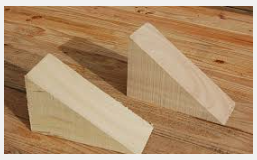At the beginning of 1807, based on information gathered from Burr’s correspondence allegedly showing that he had begun preparations for a large-scale military expedition, the former vice president was arrested in Louisiana and indicted on the charge of “wickedly devising and intending ♦ the peace and tranquility of the same United States to disturb and to stir, move, and excite insurrection, rebellion and war against the said United States”
Source: 5th last para, this graciously helpful, detailed answer:
In the Burr indictment, it seems to have been done to keep certain words and phrases close to each other for increased effect. It clusters the infinitives together without risking an object separating them. To disturb and to stir certainly belong together like that, but if you had put the object of disturb after the verb, [1.] you would have an unsightly wedge driven between the related infinitives — or [2.] you would have driven an unsightly wedge between the related verbs; your choice. :)
1. Please correct me, but I am guessing that the relative infinitives are to disturb and to stir, move, and excite?
2. What'd be the unsightly wedge caused by moving to disturb to the lozenge?
Which are the related verbs?

 .)
.)